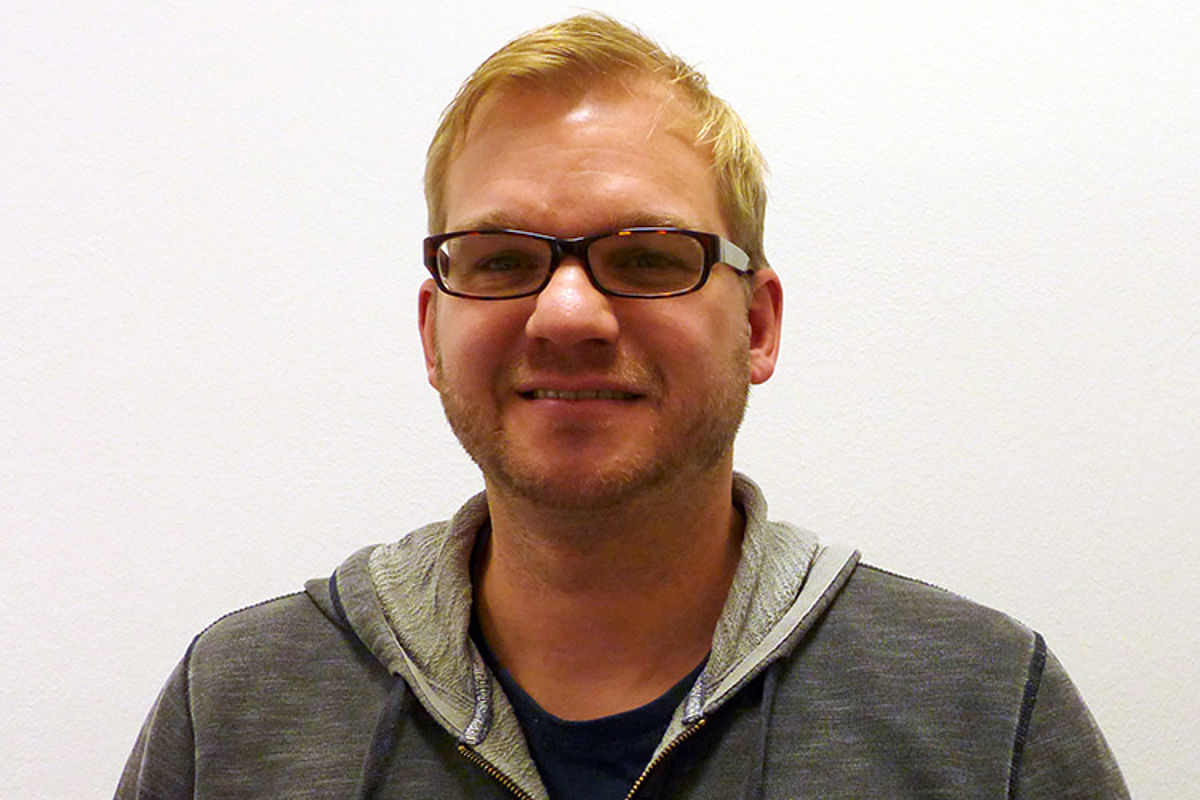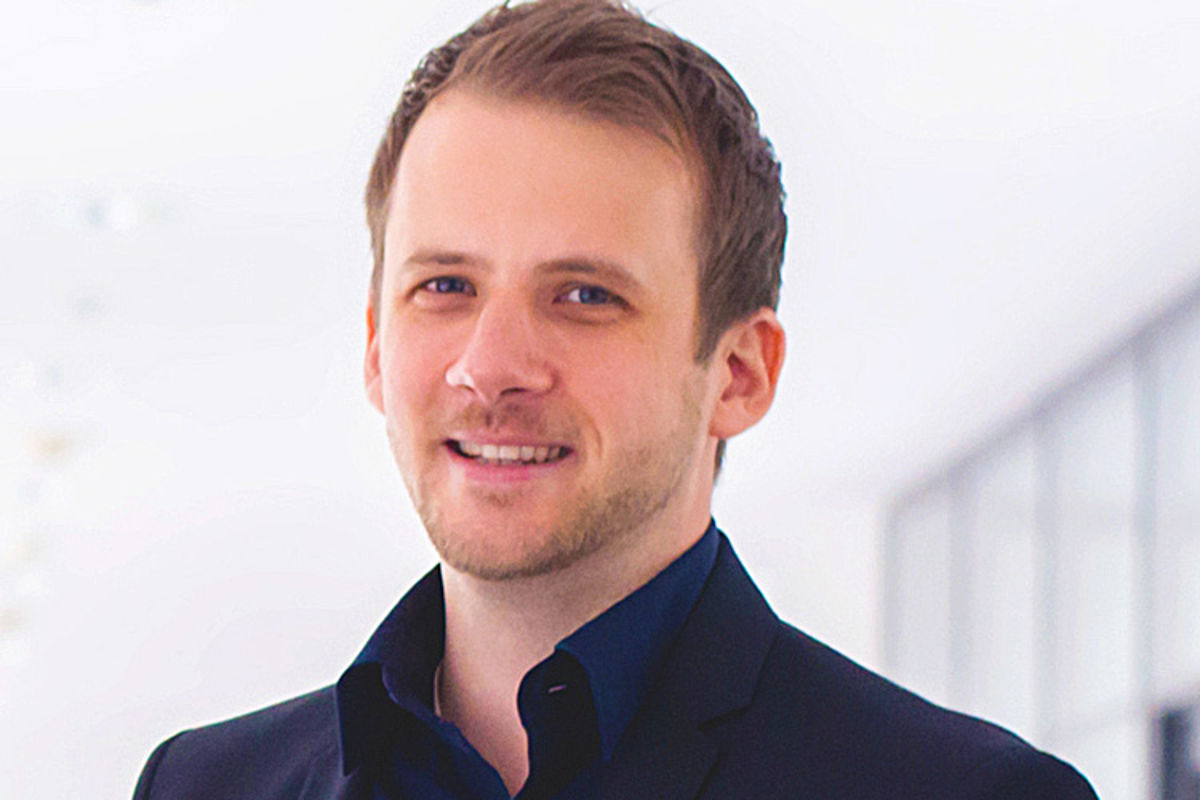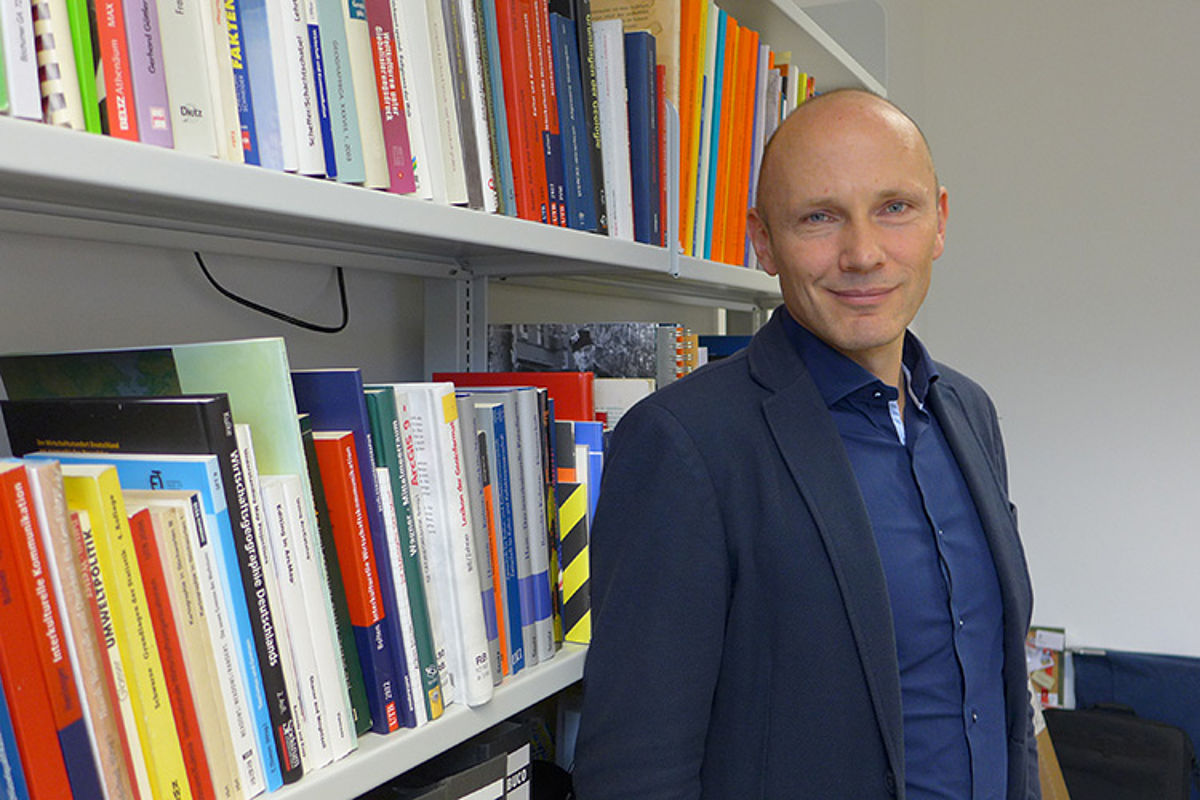The Law and the Right in Virtual Spaces
Four researchers, four disciplines, one topic: at the conference of interdisciplinary and inter-faculty DFG Research Training Group 1681/2 Privacy and Digitisation to be held from October 26th to 28th, political scientist Lea Raabe, legal expert Christian Aldenhoff, educational scientist Benjamin Heurich and geographer Jörg Scheffer will give insight into their work.
In a nutshell:
- Political scientist Lea Raabe devotes herself to researching right-wing publics in the internet, including the website of the online magazine Blaue Narzisse. Her verdict: The New Right has successfully established a counter-public. This has been borne out one more time by the outcome of the Bundestag elections. Raabe says: ‘It is fair to say that an ever-broader consensus is emerging on the positions held by the New Right.’
- Legal expert Christian Aldenhoff's field of interest is EU privacy law. His work is driven by the question of how to make sure that personal data is not disclosed to third parties without consent. The bundling ban in EU data protection law could present an opportunity.
- In his research, education scholar Benjamin Heurich examines the trust people have in digital communication and studies what happens when this trust turns into distrust. In connection with surveillance scenarios and manipulation, for example.
- Geographer Jörg Scheffer studies backstage regions in spaces, including virtual spaces. He seeks to create a critical awareness for the impact of collected data and calls for socialisation research in virtual spaces.
Political scientist Lea Raabe devotes herself to researching right-wing publics in the internet, including the website of the online magazine Blaue Narzisse. (Video in German)
Playing the video will send your IP address to an external server.
Blaue Narzisse, which translates as Blue Narcissus, sounds innocuous. What's behind it?
Blaue Narzisse is a magazine known to cater to the New Right. The New Right is a movement that paints an elitist and nationalist picture of society, is opposed to liberal democracy, calls for more plebiscitary elements and, by way of example, also advocates a state willing to flex its muscle in dealings with external interests. Blaue Narzisse and its editor-in-chief Felix Menzel are an important part of the New Right's young cadres.
Has the New Right succeeded in creating a counter-public?
The New Right is attempting to get into people's heads through discursive strategies and to move public opinion further to the right. Pushing the boundaries of what can be said, for example, would be one such discursive strategy. Or advancing the argument that a climate of political correctness has taken over in Germany and is bound to lead to the demise of the country. In their statements, the New Right portrays itself as the proclaimer of a truth, a truth that only they would speak. The New Right has succeeded in establishing a counter-public. That is borne out one more time by the outcome of the last Bundestag elections. It is fair to say that an ever-broader consensus is emerging on the positions held by the New Right
How do the possibilities of digitisation play into the hands of the New Right?
I believe that the possibilities of digitisation play a major role. They give political players the ability to disseminate their discourse – sidestepping the journalistic gatekeepers. That is enormously helpful, of course. There have always been right-leaning publications. But their number is growing exponentially at the moment, and they have also gained in significance. This is surely also due to a number of different phenomena like echo-chamber systems and filter bubbles where internet users are repeatedly exposed to their own worldview and continuously fed information that corroborates their own view of things. Ultimately, this is liable to lead to radicalisation.
What does the new EU data protection law hold in store for us?
I am specifically interested in what is generally called the bundling ban, which is currently being given a makeover at EU level. Let me explain what the bundling ban is:
When I enter into a contract online, the conclusion of the contract must not be automatically bundled in with my consent to the disclosure of data that does not need to be disclosed for implementation of the contract.
In other words: when I buy a pullover online...
… you are entering into a contract with the online trader who requires you to disclose certain data – you need to provide an address, for example, so that the pullover can be shipped to you. However, lots of providers would like more information about you, about your search and shopping behaviour, as this would allow them to target you with personalised offers or third-party ads. So, the question is whether your consent to the use of such information or additional data can still be considered voluntary if your refusal to disclose such information would deny you the possibility of entering into a contract.
In your legal view, where does the challenge lie?
The key question certainly is: How can we generally prevent consumer data from leaving the context in which it was originally disclosed. Particularly worrying is that you have personal data or entire user profiles being sold and disclosed to third parties who may want to use this data for a completely different purpose than the one they were originally collected for. For example: Not all users want their employer to find out what they have been reading on a social network over the past month. In such cases, the bundling ban could be a way to give users back more freedom of choice.
Mr Heurich, why is privacy research interested in this topic?
In the context of digital surveillance scenarios and manipulation, familiar behavioural patterns and the trust in institutions that people build up over time has sometimes turned to distrust, resistance and uncertainty. Along with that, the digital transition has seen people lose conventions and values passed down to them from past societal experience. These used to serve as a compass in their social decisions. In light of such developments, a normative claim to privacy cannot be integrated or carried over from the real-life present into digitality.
In what situations does this become tangible, for example?
In digitality, people network with supervisors, distant acquaintances or even with people they do not know. Sometimes they are confounded by the negative fallout and the unsettling events that digital acts of communication produce at the workplace or amongst one's acquaintances. The trust people have in fellow humans and social systems, their belief that they are continuing to move in their frames of relevance and analysing information accordingly – or simply failing to register such information in the first place – is undermined. People end up forming fewer relationships, or they refrain from communicating at all in specific contexts. Any such impaired motivation to engage in digital communication and partake in social life has far-reaching consequences. In its 1983 decision on the population census, the German Federal Constitutional Court already stated that is crucial for the self-determination of people to be aware of ‘who knows what when and on what occasion about them’ at all times.
In your presentation you show how some of us have still managed to rebuild our trust in digital communities. What do people need, what do societies need to bring that about?
A bit of time, digital skills and the determination to participate. The zones I mentioned are temperate particularly because an abiding type of foundational familiarity has been created where trust, but also distrust, can develop in the subsequent stage. By virtue of the daily interaction within these zones and owing to the incorporation of discursive output in the personal decision-making process, members of society get to demonstrate to one another the relevance and trustworthiness of the structures and mechanisms used. In subsequent technology-driven, disruptive moments, people will then get to seek out these sanctuaries of decelerated and self-reflective decision-making; the common denominator that people have found and cultivated on their own.
Dr. Scheffer, how is geography concerned with the topic of privacy?
Geography is concerned with all types of ‘spaces’. More recently, these increasingly include virtual spaces. Privacy is created by spatial arrangements, when the built-up environment or rules that are spatially operative give rise to marked-off areas. The virtual space includes backstage regions. Theoretically, users of virtual space can conceal all attributes that put them at a disadvantage in real space, meet people that they otherwise would never meet and pursue personal interests that they would otherwise not be able to pursue in everyday life. In that way, privacy in virtual space may be perceived as a strategic resource that can ultimately be used to climb the social ladder.
What issue will you be addressing in your presentation entitled The private as hiding place? Virtual contacts and social spaces?
‘The private as hiding place’, a description that adopts the internet user's perspective, is a figment of imagination. Any use of the internet has its price. Usually, it does not cost any money, but you pay for it with personal data. The data is used for individual propositions that pervade the virtual space. You increasingly behold what you see on the shiny surface of the smartphone when you turn it off: yourself. Privacy, a chance to deliberately conceal your social origins, your weaknesses or your habitus will become more and more difficult to find in future. Rather, the contact with yourself and people like you permanently reproduces milieus.
In your view, what responsibility do scientists have in this?
I find it particularly important to create a critical awareness for the effect that collected data has. All the studies have shown that young people, in particular, take a lackadaisical approach when using the internet. There is hardly any awareness at schools that data has become a new currency. Users are completely oblivious to the fact that each of them is being specifically confronted while, at the same time, a lot is being kept back from them. Hence, there is a strong case for socialisation research in virtual spaces. This is something that, from a geographical perspective, would be easy to follow and convey.
The four researchers will be presenting their work at the interdisciplinary conference Digitality and Privacy. This conference will be held at the University of Passau from Thursday, October 26th, to Saturday, October 28th.







